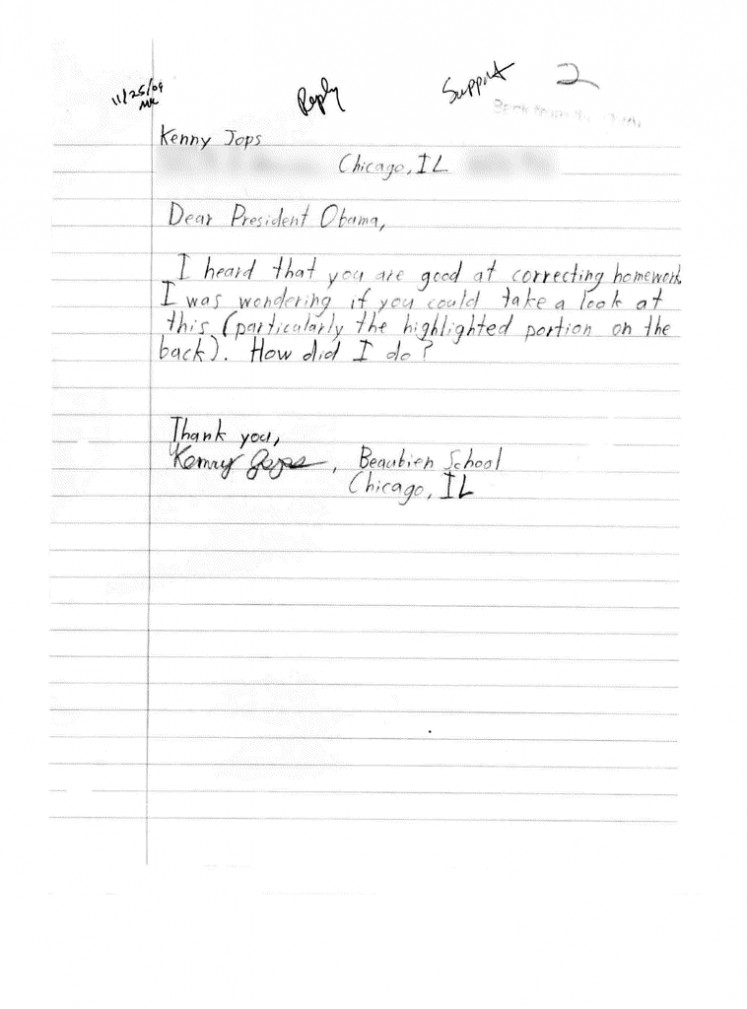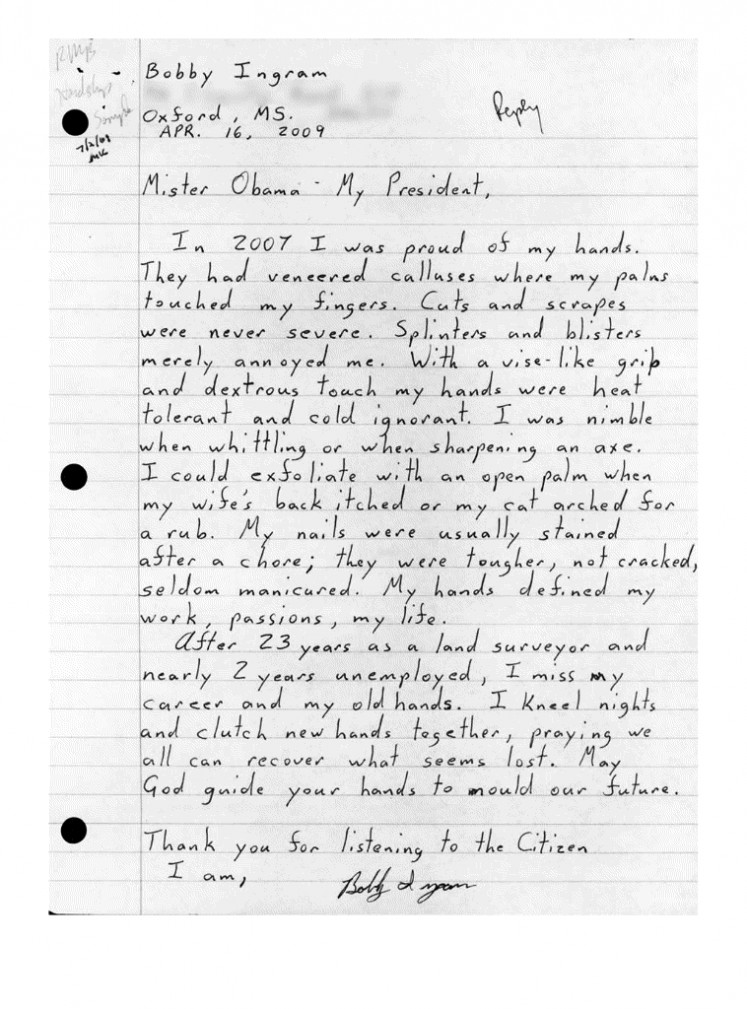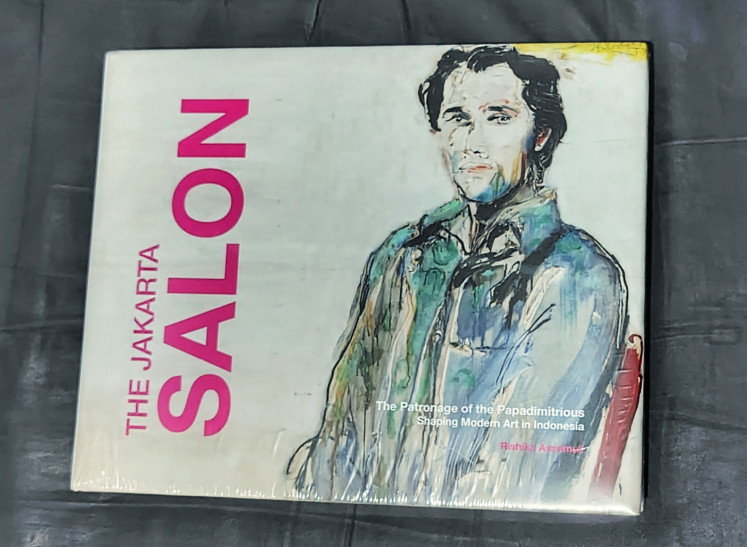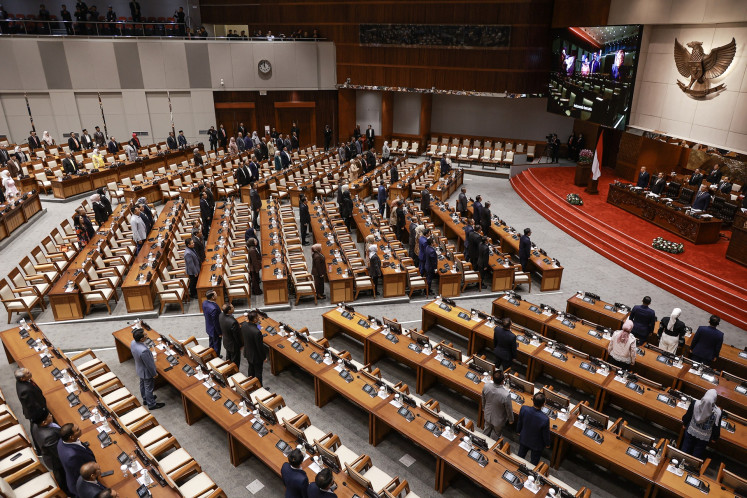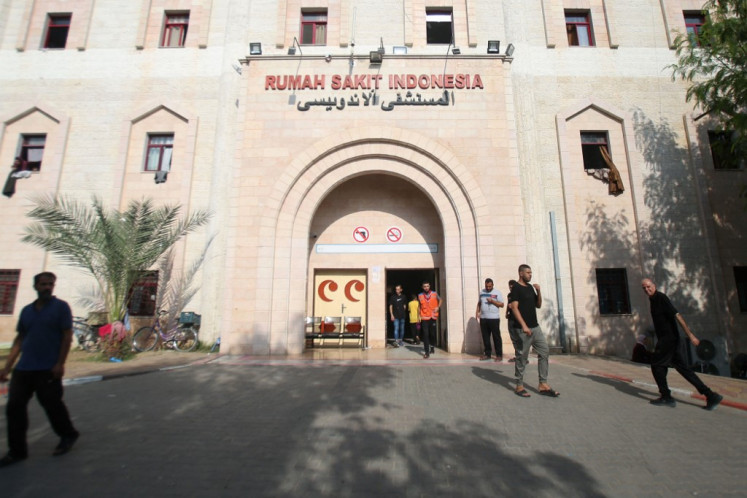Popular Reads
Top Results
Can't find what you're looking for?
View all search resultsPopular Reads
Top Results
Can't find what you're looking for?
View all search results'To Obama': Opening a backdoor into the presidency
"America is built on the idea that everyone matters. We may forget that those ideals still exist. This book is a reminder."
Change text size
Gift Premium Articles
to Anyone
E
very day during his presidency, United States President Barack Obama read 10 sample letters, carefully chosen from among 10,000 letters that Americans had written to the White House.
This seemingly simple routine owed its existence to the Office of Presidential Correspondence (OPC), which curates and responds to the complaints, criticisms, thank you notes and other requests addressed to the president.
The letters vary vastly in nature, some call for an immediate if not urgent response, while some are simple and lighthearted. A child, for instance, sent a letter asking Obama to take a look at his homework.
Letter written by Kenneth Jops (Courtesy of Bloomsbury/File)It is during Obama’s presidency that the office gained newfound popularity, as the samples often played a role in influencing Obama’s policies.
To Obama: With Love, Joy, Hate and Despair by Jeanne Marie Laskas sheds light on how the OPC works, from the selection of the sample letters to the impact of this correspondence on public policies and the people inside the administration.
The Jakarta Post talked to Laskas about the letters, Obama’s presidency and his legacy to democracy.
What's your personal favorite from all the samples you've seen?
My all-time favorite is the first letter in the book, from Bobby Ingram, of Oxford, Mississippi, an unemployed land surveyor who wrote in 2009 to tell Obama about the hands he was no longer proud of. Where he once had calluses, he now had none. “My hands defined my work, passions, my life,” he wrote. Bobby captures the mournful cry of America’s economic crisis in his letter, which reads like a poem, and what I love most about it is that he’s not asking for anything. Instead, it’s a gesture of encouragement for the incoming president. “I kneel nights and clutch new hands together, praying we all can recover what seems lost.”
Bobby’s letter is the one that set me off on the journey to write this book. Why did he do it? Who writes to the president? And what does that gesture—10,000 people a day writing to the president—say about America? Those were some of the central questions I went on to chase in the book.
Read also: Jokowi's dramatic entrance to Asian Games ceremony becomes talk of town
Letter written by Bobby Ingram (Courtesy of Bloomsbury/File)In an early part of the book, you said that knowing how the mailroom worked was "a chance to get to know Obama in a way most people hadn't". What did you discover about him only after this "back door" swung open?
One of the surprising things I discovered was how sensitive he was to criticism—especially if he felt he was misunderstood. You can see it in his responses. The longest letters he writes are to people who are critical of his administration.
“Are you going to keep even one campaign promise upon which you built your presidency?” a woman in California writes, complaining, incorrectly, that Obama was going to fund his new healthcare plan but cutting her Medicare.
Obama’s reply is twice as long as the woman’s letter. He challenges her assumptions, corrects her conclusions. That’s a lot of time and attention to some stranger who may or may not ever vote for him.
Have you written a letter to the president? Why or why not?
It never occurred to me to write to the president before I started researching this book. To me it would have been like writing to Santa Claus—a lot of wishful thinking. Turns out, there was a whole listening machine going on at the White House. A team of staffers who imagined themselves providing a megaphone for the voices. I’d like to think that every elected official can and should figure out a way to do that, if they haven’t already. I mean if the president of the United States could read his mail […] Democracy depends on an engaged citizenry. Here’s one way to engage.
You mentioned that people in the OPC didn't like talking about their work to "preserve illusion". Are you not afraid of breaking the illusion with this book?
Actually, I was thrilled to break it because behind the illusion was an inspiring world of staffers who did all this work of listening, and responding, and elevating the voices of the letter writers—and not for glory. And not even for the president, or for a political ideology. They did it because they believed that democracy works best when people who speak out are heard. That was the job, and that’s what they were committed to. I was glad to pull back the curtain and show that that stuff was happening. To me, it’s inspiring. It’s like, wait, public servants really do exist.
In relation to your conversation with Obama, on shared stories and democracy, how do you plan to duplicate these moments and connections between fellow citizens?
My job as a journalist is as much about listening as it is reporting and documenting. Working on this book has heightened my sense of my role as a listener—and a translator. Why tell stories? To connect people to people with their common humanity. To forge a path so that people might empathize rather than scorn, or mock, or hate. That’s how I see my role, increasingly.
"Over to you, citizens," is a very strong phrase, almost perfect as a closing to your book. What has been the reception from the citizens, at least those who have read your book?
A lot of tears. But not sloppy, nostalgic tears. What I’m hearing again and again is that people are touched by the notion that individual voices matter. The idea that you don’t have to be fancy, or rich, or of a certain race, or from a certain family, in order to have a voice. America is built on the idea that everyone matters. We may forget that those ideals still exist. This book is a reminder. (kes)


